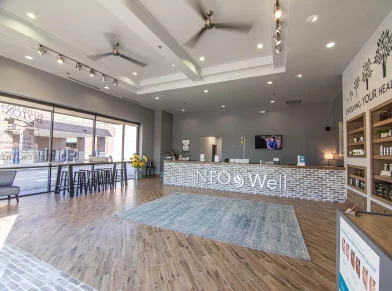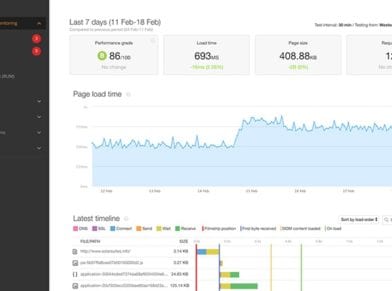NEW TOP LEVEL DOMAIN EXTENSIONS (TLDS)

Transcription
Eric: Hi. I’m here at Globe Runner SEO and I want to talk about some big news in the world of search today. We’ve got new TLDs. So new domain level extensions, so instead of just .com, .net, .org and the other 26 extensions that are out there right now, the organization that controls the domain names has announced that next year they’re going to allow companies to start buying and producing their own domain name extensions.
So a brand could have their own domain name extension. You could have google.google if you really wanted to.
But here at Globe Runner we thought what is the real business potential behind this? Who would actually do this and why? Now first off, it’s not cheap. It costs $180,000 to register your new TLD. In addition to that you’ve got to have a support team in place. There’s legal work that needs to be done.
I’m actually estimating that it will probably end up costing closer to a million dollars a year for all the overhead that goes into this. It will probably be about a million bucks a year to get this thing rolling.
So if I’m right and it costs about a million dollars a year, who would want to spend that kind of money on a domain extension. Here are some ideas. Here’s some really good business opportunities out there that I think should be explored.
First off, companies like GoDaddy and other large hosting and domain selling companies would want to get into this business. Essentially they’re buying a vertical. If they could buy .shop, for instance, or .web or something that isn’t out there right now that gives them a new extension. This would just be like GoDaddy running that commercial on the Super Bowl this last year for .co.
.co was a way that they could sell lots of new domain names under a new extension. It gave them a whole new vertical. Millions and millions of people registered domains.
So even if it cost you a million dollars a year, if I can sell these for $20 a year or $10 a year and I sell a million of them that’s a $10 million sale, pretty easy ROI case to make there.
Other companies that might use it are large companies that have a large number of websites they want to tie together through an extension. A way that I see this going is like Warner Brothers. Maybe a movie company might want to buy .mov, .movie so that they could tie their network of websites together through this extension and they’re a large enough operation, a large enough organization that it makes sense for them.
Another good example would be sports leagues. So I definitely could see the NFL would want .nfl. You’d have cowboys.nfl and all the other NFL teams would have a .nfl official website. And they could control that and guarantee that when a viewer goes to their website they’re looking at the official website for that particular team. So I see those as two particular ways that this can be used for a business advantage for a company.
The other one that we see potential for is any kind of website that has a large number of sub domains. So a good example is WordPress. If you set up a WordPress website you can set them up two ways. Obviously you can do a self hosted WordPress, but a lot of people just go to wordpress.com, create an account, instantly have a website up, and it’s yourwebsite.wordpress.com.
Well now you’ve got a sub domain. Well I think WordPress might register something like .wp and then you would have yourwebsite.wp instead of yourwebsite.wordpress.com. So there’s those types of opportunities too. I could definitely see somebody like Google trying to make their blog platform more effective and get .blog for instance, instead of .blogger.com.
So there’s a lot of opportunities here for business to really expand the marketplace. I think it’s a good shift. It certainly will reshuffle search some. We’ll see, over the coming few years, how this affects search going forward. If these get preferential treatment or if they’re a little harder to rank. I think there’s arguments to be made for both.
Certainly your TLD having an effect on search today. A .edu will rank differently than a .org or a .com or a .biz. Those differences are less and less important, I think, than they used to be. During the original rollouts of the web we saw that .coms got preferential treatment.
Today I think that if you have a really good .net and it’s got good information it can rank just as well as a .com. So we’ll be interested to see how that rolls out and how those changes make.
But if you’re in the business of buying TLDs, you’re in business now.

























